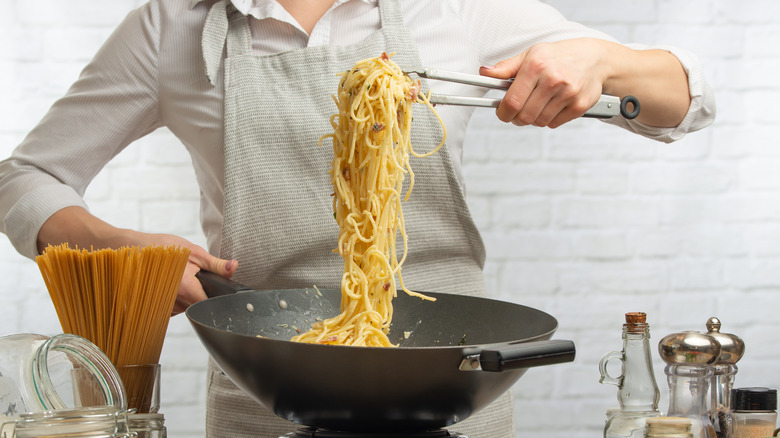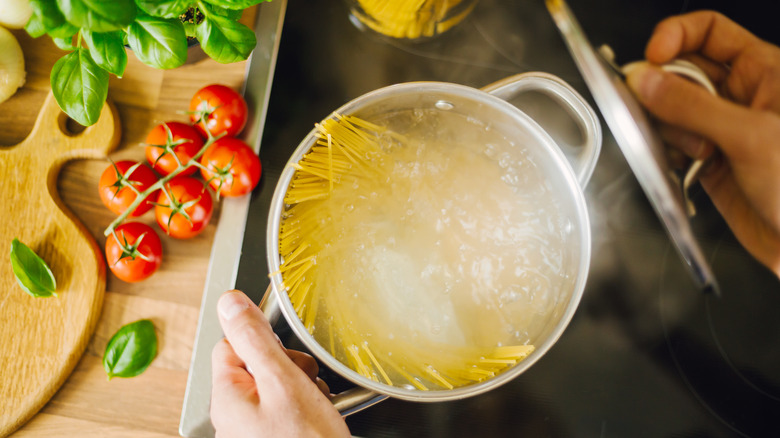How To Keep Pasta From Sticking, According To A Chef
Cooking pasta is a pretty simple process, but there can be hiccups if a few details are missed. Like when noodles stick to the pot, which is disappointing because you get less pasta and it's also tough to clean — you usually have to get in there and scrape it with a spatula or even your nails to free the straggler pieces. There's also the risk of the pasta sticking to itself. When you're excited to devour a comforting bowl of the Italian dish, there are few things more disappointing than realizing it has formed a giant clump.
Not only that, but the pasta chunk can cause the sauce to splatter out of the pan and on top of that mess, so combining it with the sauce is no easy task, either. It's especially disappointing when you cook spaghetti or other thin noodles because the tangled ball of pasta can be tough to get apart and there's often breakage.
To prevent pasta from sticking to the pot or forming a noodle clump, a few Food Network chefs like Rachael Ray and Ina Garten say to add olive oil to the pasta water in recipes on their respective websites. This may work for them, but many like Lorenzo Boni, executive chef at Barilla, disagree with this method — as he said, "Oily pasta will have [a] harder time to clinch on the sauce, and most of the oil will be drained any way." Instead, he provided a few alternatives in an exclusive interview with Mashed.
Make sure there's plenty of water and it comes to a hard boil
Americans consume more than 6 billion pounds of pasta per year (via Tastemade), so it's important to know how to cook this staple dish correctly. In an exclusive interview with Mashed, Lorenzo Boni, executive chef at Barilla, explained his best practices for cooking pasta. To keep noodles from sticking to the pot, he suggests getting a good quality pasta made of durum wheat that will reduce the amount of starch released in the water, then using plenty of water (1 gallon per package is recommended, per Boni), and also cranking the heat to ensure the contents in the pot come to a hard boil. If the water is boiling furiously, the pasta can move around more, so it's less likely to stick to itself or the pot.
Another way to keep the noodles from clumping up is to not let it drain in a colander for too long. "Be quick and never let pasta sit in the colander waiting for the sauce to be ready. It should be the other way around. Sauce must be ready before pasta is cooked, so that they can be combined right away," said Boni. He also mentions that it's important to stir right after you add dry noodles to the pot, and then every two to three minutes from there. Boni adds if you have the correct ratio of water and it's hard boiling, you won't have to stir as often, either. Cooking pasta isn't rocket science, but it's always nice to have a reminder from the experts about how to make a delicious dish even better.

